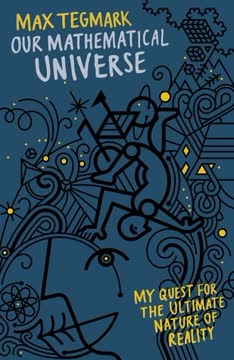Key Takeaways
1. Our universe is vastly larger than we imagine, with multiple levels of parallel universes
Every time we humans have managed to zoom out to larger scales, we've discovered that everything we knew was part of something greater.
Cosmic perspective. Our understanding of the universe has repeatedly expanded, from Earth-centered models to the realization that our planet is one of billions orbiting billions of stars in billions of galaxies. Modern cosmology suggests even vaster scales:
- Level I multiverse: Regions beyond our observable universe
- Level II multiverse: Other post-inflation bubbles with different physical laws
- Level III multiverse: Quantum branching realities
- Level IV multiverse: All mathematically possible universes
This hierarchical structure challenges our intuitions about reality's scope and nature, forcing us to confront the possibility that our observable universe is a tiny fraction of what exists.
2. The fabric of reality is mathematical, from quantum particles to cosmic structures
To me, the greatest surprise with quantum mechanics is that it reveals nature to be continuous and discrete, random and deterministic, local and nonlocal.
Quantum foundations. At the smallest scales, reality is governed by the bizarre rules of quantum mechanics. Particles exist in superpositions of states, exhibiting wave-like properties until measured. This quantum weirdness underlies the behavior of atoms, molecules, and ultimately all matter:
- Quantum superposition: Particles in multiple states simultaneously
- Wave-particle duality: Matter exhibits both particle and wave properties
- Quantum entanglement: Particles can be instantly correlated across distances
- Heisenberg uncertainty principle: Precise measurement of position and momentum impossible
These quantum properties, described by mathematical equations, form the bedrock of our physical reality, scaling up to create the classical world we experience.
3. Quantum mechanics implies parallel realities, challenging our perception of randomness
Quantum observation isn't about consciousness, but simply about the transfer of information.
Quantum multiverse. The Many Worlds interpretation of quantum mechanics, proposed by Hugh Everett, suggests that every quantum measurement splits reality into multiple branches. This implies:
- No wavefunction collapse: The universe continually branches into parallel realities
- Deterministic underlying reality: Apparent randomness emerges from our limited perspective
- Quantum immortality: In some branches, you may always survive unlikely events
While controversial, this interpretation offers a consistent way to understand quantum phenomena without invoking mysterious collapses or observer effects. It challenges our notions of free will and the nature of probability.
4. Our observable universe may be part of an infinite multiverse
If the doors of perception were cleansed every thing would appear to man as it is, Infinite.
Cosmic inflation. The theory of cosmic inflation, which explains the universe's uniformity and flatness, naturally leads to the concept of eternal inflation:
- Rapidly expanding space: Inflation stretches quantum fluctuations to cosmic scales
- Bubble universes: Regions stop inflating, forming separate universes
- Infinite replication: This process continues eternally, creating infinitely many universes
In this scenario, our observable universe is just one bubble in a vast, ever-expanding multiverse. This concept solves puzzles in cosmology but raises profound philosophical questions about the nature of existence and possibility.
5. The nature of time and consciousness remains a profound mystery
I feel that the most important lesson physics has taught us about the ultimate nature of reality is that, whatever it is, it's very different from how it seems.
Time's enigma. Our intuitive understanding of time as a flowing dimension is challenged by modern physics:
- Block universe: Einstein's relativity suggests past, present, and future exist simultaneously
- Emergent time: Some theories propose time emerges from more fundamental quantum phenomena
- Consciousness and time: Our perception of time's flow may be a construct of consciousness
These ideas force us to question our most basic assumptions about reality and our place within it. The nature of consciousness and its relationship to the physical world remains one of science's greatest unsolved mysteries.
6. Dark matter and dark energy dominate the cosmos, yet remain poorly understood
Out of all your infinitely many look-alikes out there on other planets, there's also one who speaks English, lives on a planet identical to Earth, and has experienced a life completely indistinguishable from yours in all ways.
Cosmic composition. Observations of galactic rotation and cosmic expansion reveal that ordinary matter makes up only a small fraction of the universe's contents:
- Dark matter: ~25% of the universe, detectable only through gravitational effects
- Dark energy: ~70% of the universe, driving accelerated cosmic expansion
- Ordinary matter: Only ~5% of the universe's total energy content
The nature of dark matter and dark energy remains one of the biggest unsolved problems in physics, with implications for our understanding of fundamental forces and the fate of the universe.
7. Mathematics describes reality with uncanny precision, hinting at deeper truths
I think of inflation as the explanation that doesn't stop—inflating or explaining.
Mathematical reality. The extraordinary effectiveness of mathematics in describing physical reality suggests a deep connection between abstract math and the concrete world:
- Fundamental equations: Laws of physics expressed as elegant mathematical relationships
- Symmetries and conservation laws: Deep mathematical principles underlie physical phenomena
- Predictive power: Mathematical models accurately forecast previously unknown phenomena
This "unreasonable effectiveness" of mathematics, as Eugene Wigner called it, hints that reality may be fundamentally mathematical in nature, rather than mathematics being merely a human tool for description.
8. Our place in the cosmos is both insignificant and profoundly meaningful
Evolution endowed us with intuition only for those aspects of physics that had survival value for our distant ancestors.
Cosmic perspective. Our growing understanding of the cosmos reveals both our physical insignificance and the extraordinary improbability of our existence:
- Vast scales: Earth is a tiny speck in an immense universe
- Fine-tuning: Many cosmic parameters appear precisely tuned for life
- Anthropic principle: Our existence selects for a universe capable of supporting us
This tension between our cosmic insignificance and the apparent specialness of our situation challenges us to find meaning in a vast and largely inhospitable cosmos.
9. Scientific progress often faces resistance before revolutionizing our worldview
There are probably more different attitudes to quantum mechanics than there are quantum physicists.
Paradigm shifts. Throughout history, revolutionary scientific ideas have often faced initial skepticism and resistance:
- Heliocentrism: Copernicus and Galileo challenged Earth-centered models
- Evolution: Darwin's theory upended traditional views of life's origins
- Quantum mechanics: Einstein and others struggled with its implications
This pattern reminds us to remain open to ideas that challenge our intuitions, as they may lead to profound advances in our understanding of reality.
10. The ultimate nature of reality may be purely mathematical
I argue that our physical world not only is described by mathematics, but that it is mathematics, making us self-aware parts of a giant mathematical object.
Mathematical universe hypothesis. Tegmark proposes that reality itself is a mathematical structure:
- External reality hypothesis: An objective reality exists independent of observers
- Mathematical structures: Abstract entities with relations between them
- Ultimate explanation: This view could explain the effectiveness of math in physics
This radical idea suggests that all possible mathematical structures exist as realities, with our universe being one such structure. It offers a potential resolution to the question of why there is something rather than nothing, but raises profound questions about the nature of existence and consciousness.
Last updated:
FAQ
What's Our Mathematical Universe about?
- Exploration of Reality: Max Tegmark's book explores the nature of reality, proposing that our universe is fundamentally mathematical. It introduces the Mathematical Universe Hypothesis (MUH), suggesting that everything can be understood through mathematics.
- Cosmology and Multiverse: The book delves into cosmology, discussing concepts like the Big Bang, cosmic inflation, and various levels of multiverses. It connects these ideas to the mathematical framework of the universe.
- Personal and Scientific Journey: Tegmark shares his personal experiences as a physicist, inviting readers to join his quest to understand the ultimate nature of reality through a blend of scientific inquiry and personal anecdotes.
Why should I read Our Mathematical Universe?
- Unique Perspective: Tegmark offers a fresh viewpoint on fundamental questions about existence and reality, blending personal stories with scientific exploration.
- Engaging and Accessible: The book presents complex ideas in an accessible manner, making it suitable for readers with varying levels of scientific knowledge.
- Interdisciplinary Insights: It bridges gaps between physics, mathematics, and philosophy, providing a comprehensive understanding of how these fields interrelate.
What are the key takeaways of Our Mathematical Universe?
- Reality is Mathematical: Tegmark argues that the universe is not just described by mathematics; it is mathematics, suggesting that all physical phenomena can be understood through mathematical structures.
- Multiverse Concepts: The book introduces a hierarchy of multiverses, challenging traditional notions of reality and suggesting that our universe is just one of many.
- Importance of Questions: Tegmark emphasizes the significance of curiosity and asking the right questions in science, which drives discovery and understanding of the universe.
What is the Mathematical Universe Hypothesis (MUH)?
- Core Concept: The MUH posits that all physical reality is a mathematical structure, meaning that every mathematical structure corresponds to a physical reality.
- Implications for Existence: If true, this hypothesis suggests that everything we experience is a manifestation of mathematical relationships, challenging the notion of a physical universe existing independently of mathematics.
- Connection to Physics: The MUH provides a framework for understanding various physical phenomena through mathematics, suggesting that the laws of physics are rooted in the underlying mathematical structure of reality.
How does Our Mathematical Universe explain the concept of multiverses?
- Four-Level Hierarchy: Tegmark outlines a multiverse structure with four levels, each representing different aspects of reality, from distant regions of space to all mathematical structures.
- Level IV Multiverse: The most expansive level includes all mathematical structures, suggesting that every conceivable universe exists, challenging the traditional view of a singular universe.
- Existential Implications: The existence of multiverses raises questions about our place in the cosmos and the nature of reality, suggesting that our experiences are just one of many possible realities.
How does Max Tegmark relate mathematics to physical reality?
- Mathematics as Reality: Tegmark argues that mathematics is not just a tool for describing the universe but is the very fabric of reality itself.
- Abstract Structures: The book explores how mathematical structures can represent physical phenomena, suggesting that the universe operates according to mathematical principles.
- Implications for Understanding: By viewing reality as mathematical, Tegmark encourages a shift in perspective that could lead to new insights in both physics and philosophy.
What role does consciousness play in Our Mathematical Universe?
- Consciousness as Information Processing: Tegmark argues that consciousness is the way information feels when being processed, framing it as a mathematical phenomenon.
- Self-Awareness: The book suggests that self-awareness arises from complex mathematical structures, inviting readers to rethink the nature of identity and existence.
- Philosophical Implications: This exploration leads to profound questions about the nature of reality, existence, and the self, challenging readers to consider how consciousness fits into the broader mathematical universe.
How does Our Mathematical Universe address the concept of time?
- Time as an Illusion: Tegmark posits that the flow of time is an illusion, suggesting that our perception of time as a linear progression is a construct of human consciousness.
- Spacetime Structure: The book emphasizes that time is part of a four-dimensional spacetime structure, where all moments exist simultaneously rather than sequentially.
- Observer Moments: Tegmark introduces the concept of observer moments, highlighting the complexity of human experience and the nature of consciousness in relation to time.
What are the best quotes from Our Mathematical Universe and what do they mean?
- “The most important lesson physics has taught us about the ultimate nature of reality is that, whatever it is, it’s very different from how it seems.”: This quote encapsulates the theme that our intuitive understanding of reality is often misleading, and deeper scientific inquiry reveals a more complex universe.
- “The wavefunction never collapses. Ever.”: This statement reflects the Many-Worlds interpretation of quantum mechanics, suggesting that all possible outcomes exist simultaneously in parallel universes.
- “You’re a pattern in spacetime. A mathematical pattern.”: This quote highlights the idea that our existence is fundamentally mathematical, suggesting that our identities and experiences are part of a larger mathematical structure.
How does Max Tegmark explain cosmic inflation in Our Mathematical Universe?
- Rapid Expansion: Tegmark describes cosmic inflation as a period of exponential expansion in the early universe, explaining the uniformity of the cosmic microwave background radiation.
- Solving Problems: Inflation addresses cosmological issues like the horizon and flatness problems, providing a mechanism for the large-scale structure we observe today.
- Eternal Inflation: The concept suggests that inflation continues in some regions of space, leading to the creation of multiple universes, expanding our understanding beyond a single Big Bang event.
How does Our Mathematical Universe address the concept of dark matter and dark energy?
- Dark Matter: Tegmark explains that dark matter is an invisible substance exerting gravitational effects on visible matter, essential for understanding galaxy structures.
- Dark Energy: Described as a mysterious force driving the universe's accelerated expansion, dark energy constitutes about 70% of the universe's total energy density.
- Interconnected Mysteries: Both dark matter and dark energy are crucial for a complete understanding of the universe, challenging our current understanding of physics.
What are the future implications of Tegmark's theories in Our Mathematical Universe?
- Ongoing Research: Many questions remain unanswered, particularly regarding dark matter, dark energy, and the origins of the universe, with ongoing research aiming to explore these mysteries further.
- Technological Advances: Future advancements in technology and observational techniques will likely lead to new discoveries in cosmology, refining our understanding of the universe.
- Philosophical Exploration: The implications of Tegmark's theories extend beyond science into philosophy, prompting deeper inquiries into the nature of reality, existence, and our place in the cosmos.
Review Summary
Our Mathematical Universe explores Max Tegmark's controversial theory that reality is fundamentally mathematical. Reviewers praise Tegmark's clear explanations of complex physics concepts and his engaging writing style. Many find the book thought-provoking, even if they don't fully agree with Tegmark's conclusions. Readers appreciate the accessible overview of modern cosmology and quantum mechanics. Some criticize Tegmark's more speculative ideas as unfalsifiable. Overall, the book is seen as an entertaining and stimulating read for those interested in the nature of reality and the frontiers of physics.
Similar Books

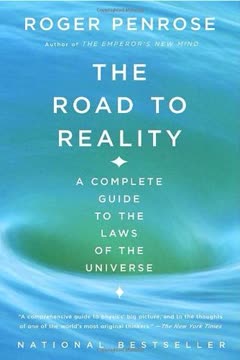
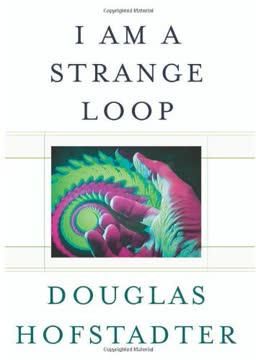


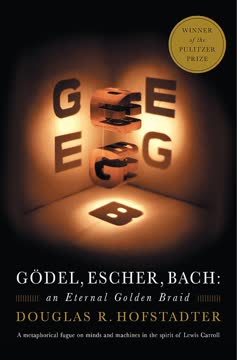
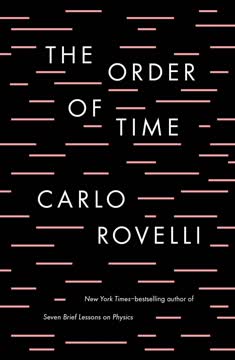

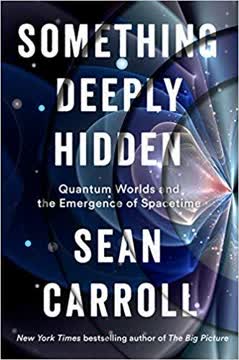
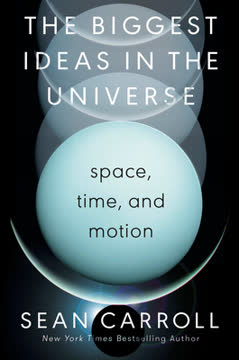
Download PDF
Download EPUB
.epub digital book format is ideal for reading ebooks on phones, tablets, and e-readers.
